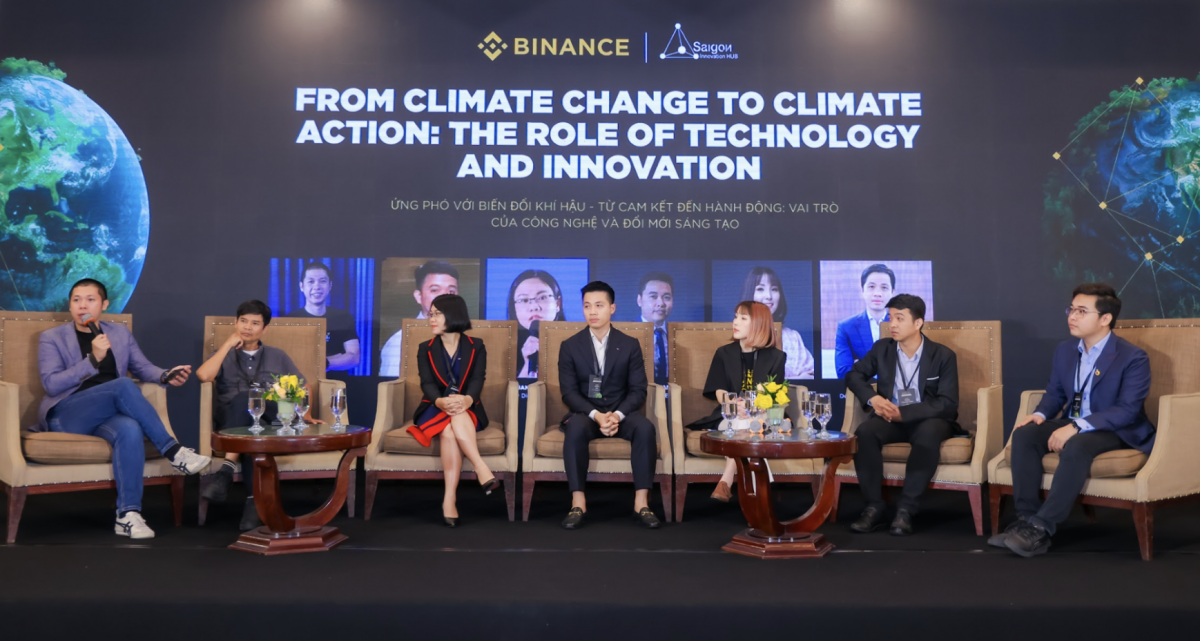This was the consensus among experts gathered at the "Vietnam Climate Change Response Forum: Collaborating for Our Planet," held in Ho Chi Minh City on June 5th.

During the G77 Summit on Climate Change in Dubai, December 2023, Prime Minister Pham Minh Chinh reiterated Vietnam's commitment to achieving net-zero emissions by 2050. Vietnam, profoundly affected by climate change, views this commitment as an urgent national priority.
Dr. Tran Thanh Tam, from Ho Chi Minh City University of Natural Resources and Environment, highlighted the myriad challenges posed by climate change, including rising sea levels from melting glaciers, saltwater intrusion, and extreme weather events like El Nino and La Nina, exacerbating droughts and floods. To meet the 2050 Net Zero target, Vietnam has not only pledged but also devised specific strategies, placing emphasis on green technologies and innovative solutions.
Ms. Lynn Hoang, National Director of Binance, emphasized the pivotal role of technology in combating climate change. AI, she noted, aids in data processing, accelerates calculations for accurate climate forecasts, and enhances industrial efficiency while reducing energy consumption. Meanwhile, Blockchain's transparent nature facilitates sustainable development by enabling efficient value distribution within decentralized networks.
Blockchain technology, specifically, can revolutionize carbon credit markets by establishing transparent, efficient trading platforms. Carbon credits, permits allowing emissions up to a certain threshold, can be easily traded on Blockchain platforms, fostering emissions reduction. Moreover, Blockchain enhances supply chain transparency, enabling consumers to verify sustainable production and transportation practices.

Mr. Le Yen Thanh, CEO of BusMap, highlighted Blockchain's potential in achieving Vietnam's Net Zero goals, citing BusMap's collaboration with VinBus to quantify carbon emissions from electric buses. Since 2020, BusMap has collaborated with VinBus to build a measurement and calculation system to convert the number of kilometers electric buses have traveled into approximately 37 million tons of carbon, equivalent to planting 1.5 million trees. However, businesses do not know how to convert this into carbon credits that can be brought to the market to create value. The lack of clear quantification makes businesses unsure of the value their pursuits can bring.
From a macro perspective, Mr. Ha Trung Kien, CEO of Gapo, underscored technology's role in climate change adaptation, from AI and Big Data for accurate forecasting to IoT for resource optimization in agriculture.
According to Mr. Ha Trung Kien, the fight against climate change cannot be separated from digital transformation and the application of technology to optimize processes, minimize the use of environmentally unfriendly resources, or the use of materials that must be extracted from nature.
While technology offers promising solutions, Ms. Lynn Hoang cautioned against losing sight of immediate community challenges. She stressed the importance of addressing pressing issues like saltwater intrusion and drought in the Mekong Delta alongside broader discussions on carbon credits.
In summary, AI and Blockchain represent powerful tools in the fight against climate change, but their effectiveness hinges on a grounded approach that addresses both immediate and long-term challenges.
Le My